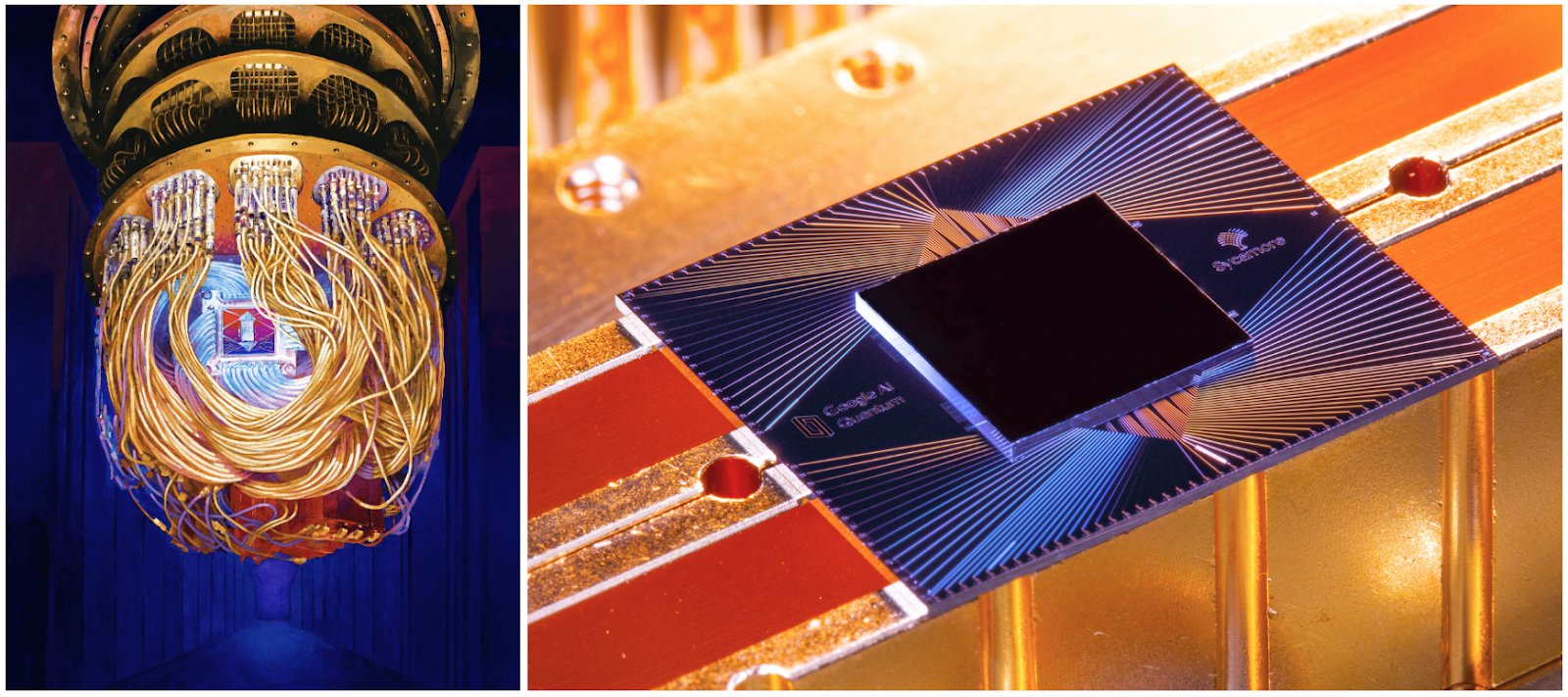Google Officially Claims Quantum Supremacy, Despite IBM's Objections

Google released a paper in the science journal Nature today officially claiming “quantum supremacy” with its 54-qubit quantum processor. The paper had previously been leaked, and the results were already contested earlier this week by IBM, Google’s main quantum computing rival.
Google Puts Its Quantum Computer to the Test
For its “quantum supremacy” test, Google selected a sensitive computational benchmark that would have failed if a single component didn’t perform up to expectations. The company created a new 54-qubit quantum processor, Sycamore, with the goal of showing that it could run the benchmark much faster than a classical supercomputer could.
You may notice that Sycamore has fewer qubits than Google’s previous 72-qubit Bristlecone quantum processor. Google didn't explain why it went back on the number of qubits. But it could have something to do with the company preferring fewer but higher-stability qubits over more qubits with higher-error rates.
Quantum "Hello World" Program
Google likened the benchmark it chose to a “Hello world” program for quantum computers. In other words, it’s one of the simplest quantum programs a novice quantum programmer would create. In this case, the hello world program was defined by creating a random sequence of logical gates.
Because quantum circuits don’t have a defined structure, it becomes enormously difficult to replicate the same quantum program on a classical system, so this “hello world” program for quantum computers also becomes a good quantum supremacy test.
The Quantum Supremacy Dispute
Google's paper, which already made headlines when it leaked weeks ago, states that the Sycamore processor took "about 200 seconds to sample one instance of a quantum circuit a million times—our benchmarks currently indicate that the equivalent task for a state-of-the-art classical supercomputer would take approximately 10,000 years." However, in its own paper published Monday, IBM disputed Google's quantum supremacy claim. It argued that Google didn't achieve quantum supremacy, which implies a quantum computer completing a task that a classical supercomputer couldn't complete in a reasonable amount of time. Big Blue claimed that its supercomputer was able to complete the task in question in under 2.5 days.
More Powerful Quantum Computers Expected Soon
Google's paper noted that its Sycamore quantum processor is forward compatible and should support error-correction algorithms that the company may create in the future. Google expects to be able to create scalable and more powerful versions of Sycamore well into the future. It claimed that its processor is fully programmable and can run general quantum computing algorithms (unlike the quantum annealing D-Wave computer, for instance).
Get Tom's Hardware's best news and in-depth reviews, straight to your inbox.
Google said it’s already working on building near-term useful applications for its quantum computer, such as simulating certain molecules and chemical reactions. It believes that quantum computers will prove most useful in the development of new drugs, creating new materials, such as lighter-weight batteries for cars and planes, creating new catalysts that can produce fertilizers more efficiently and more.
Lucian Armasu is a Contributing Writer for Tom's Hardware US. He covers software news and the issues surrounding privacy and security.